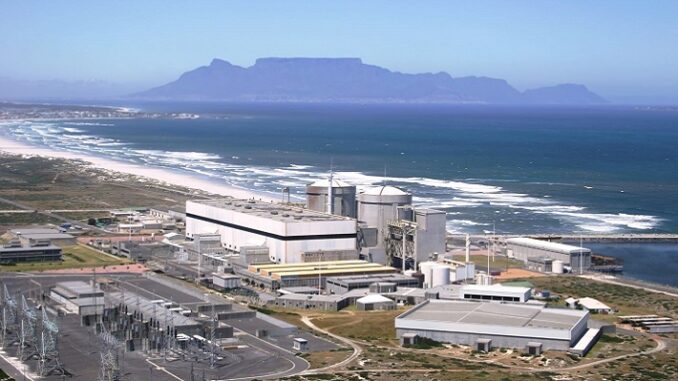
Eskom, the South African electricity public utility, has synchronised Unit 2 of the Koeberg Nuclear Power Station in Cape Town to the national grid following a long-term operation (LTO) programme designed to extend its operational lifespan
Unit 2 contributes 930MW to the energy grid and is (alongside Unit 1) therefore considered vital to the country’s future energy security. With this in mind, Eskom undertook the LTO programme in order to ensure the safe and efficient performance of Unit 2 at the facility, helping to increase its operational lifespan by 20 years. The LTO programme included the replacement of three steam generations, inspections, and refuelling activities and follows the successful completion of a similar programme on Unit 1 in 2023.
“While projects like the LTO programme necessitate a higher initial upfront investment, the long-term benefits – including decades of affordable, low-carbon energy – make them indispensable,” said Eskom’s group chief executive, Dan Marokane. “Koeberg exemplifies how nuclear power can align economic and environmental priorities to create a sustainable energy future. Through the successful execution of the LTO project, our Koeberg team has once more demonstrated the exceptional skills we have to support our country’s nuclear ambitions.”
Units 1 and 2 of the Koeberg facility will supply 1,860MW to the grid, representing an approximate 5% of South Africa’s total electricity.
Cutting out coal
“By forming strategic collaborations with international designers, suppliers, and industry leaders, Koeberg has established itself as a hub for nuclear innovation,” remarked group executive for generation, Bheki Nxumalo. “These partnerships are anticipated to be crucial as South Africa explores advanced nuclear technologies, such as Small Modular Reactors (SMRs). This could position the country as a leader in cutting-edge nuclear solutions while continuing to build and maintain a skilled nuclear workforce.
“As South Africa phases out some of the aging coal-fired power plants by 2030, nuclear energy is poised to provide a reliable and stable baseload supply. Unlike intermittent renewable sources, nuclear power ensures continuous electricity generation, meeting the needs of both residential and industrial users. Its ability to produce carbon-free energy also supports South Africa’s climate goals by reducing greenhouse gas emissions.”



